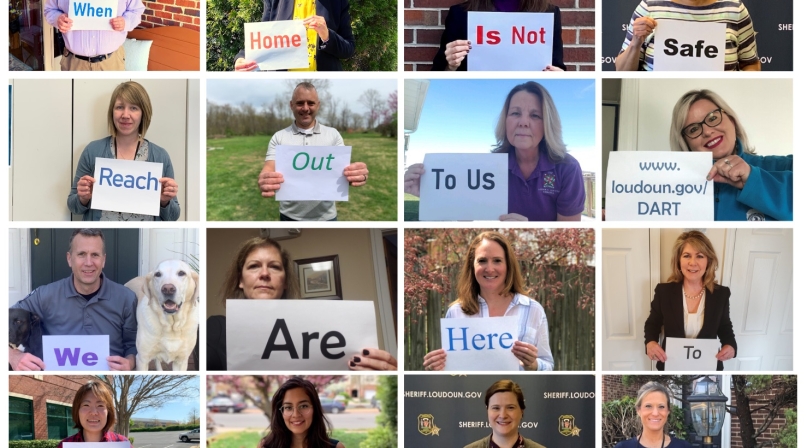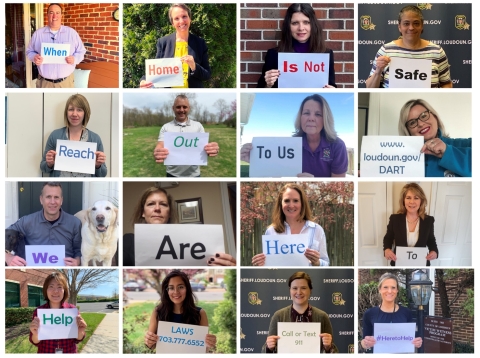County social services carry on, support abuse victims during COVID-19
Author
Upcoming Events
Related News

Key Takeaways
Stay-at-home orders, financial stress and employment stress are all ingredients that combine to make a recipe for disaster for victims of abuse.
Utah County Commission Vice Chair Nathan Ivie said the county’s 911 dispatch has reported a 75 percent increase of domestic violence calls.
Ivie described how self-isolation takes a toll on individuals’ mental health, which leads to increased tensions in relationships that often result in violence.
“I think it’s important we keep a holistic view of effects on public health and that includes physical health and mental health as well,” he said.
Ivie said the biggest challenge to providing social services during the coronavirus pandemic is the limitations on personal interactions but emphasized that services are still available for individuals who need help.
Counties need to ensure safety nets are in place through local health departments, local mental health services and law enforcement and are properly staffed and equipped to meet the needs of a community during a time of crisis, he said.
The sheriff’s office in Loudoun County, Va., has also seen a recent spike of domestic abuse hotline calls, according to Josephine Gonzalez, program manager of the county’s Domestic Abuse Response Team.
Gonzalez said the isolation piece makes this situation worse for victims. Domestic violence is about the dynamics of power and control, she said, and isolation is a major tactic that offenders are using to exert control; financial and economic stressors stemming from the coronavirus are also a factor.
“I do think that many times survivors have to almost choose what they can worry about,” Gonzalez said. “Do I choose to stay here with a roof over my head and try to continue to minimize the violence?”
Even during stay-at-home orders and quarantines, the Domestic Abuse Response Team is overcoming challenges to find ways to help individuals.
“We’ve definitely had to modify how we deliver our services, but we are here to serve our community 100 percent,” Gonzalez said.
The county’s Domestic Abuse Response Team is an inter-agency collaboration that includes law enforcement, community corrections, schools, mental health professionals and other advocacy agencies.
Gonzalez said an individual can still obtain a protective order during these times and advocates are available as part of the Loudoun Abuse Women’s Shelter, which is offering shelter to survivors during the pandemic.
“What we’ve been doing is we were looking for a way to continue to provide outreach just so survivors also know that despite these many changes, we’re still here and we’re still available,” she said.
Meanwhile, counties are seeing a dramatic decrease of calls to child abuse hotlines. Ina Fernandez, the deputy director of the Loudoun County Department of Family Services, said there has been a “dramatic decrease” in calls to the child abuse hotline. She is attributing this to mandated reporters unable to see children because of the stay-at-home orders.
“It does concern us because we know that just because we’re not getting calls does not mean it’s not happening,” she said.
Family support workers who need to respond to calls regarding child abuse and neglect are taking precautions including practicing social distancing and wearing personal protective equipment.
Fernandez said one of her main concerns is placing a child who may be COVID-19 positive with a family in a foster home. She said many families are afraid to take in a child with COVID-19 because they want to keep their own family safe.
If this situation were to occur, the department is looking at alternative ways to provide services to kids who may need to be brought into care, but can’t be placed in a traditional foster home, she said.
She described how this may be “the calm before the storm.” Once children are seen by mandated reporters, there may be a significant increase in calls.
“Please, if you are concerned about a child or domestic violence, call. We’re here. This is our job and we want to make sure that the kids and residents of our community are safe,” she said.
Albany County, N.Y., Department for Children, Youth and Families Commissioner Moira Manning said the department has also seen a decrease in the number of child abuse reports.
“This is very concerning because child abuse does not stop because of COVID-19,” she said. “The problem really being is that mandated reporters are not available to see these students.”
Manning encouraged community members to take action and look out for children, who she described as one of the most vulnerable populations.
“When there is additional stress and burden on a family, it can really create an unsafe situation,” she said.
Similarly, in Goodhue County, Minn., Social Services Supervisor in the Child and Family Unit Kris Johnson said they have not been receiving the same volume of child protection reports, specifically for the months of March and April, which are traditionally high months with concerns over truancy and educational neglect.
“I think one of the things we’re hearing about is a very high level of stress in the home,” Johnson said.
She explained how they have increased the number of child welfare responses, such as responding to calls that may not meet the level for child maltreatment but show high levels of stress. Staff from the unit may contact the family to check in and de-escalate problems to prevent a situation from resulting in a child protective order.
Johnson said the majority of contacts are now completed by video conference or phone calls. She said in certain situations when there is concern about the condition of a home, staff may make in-person visits.
“We want people to know that just because our county building is not open to the public, all of our county staff are working and communicating with people and helping problem solve those situations,” Johnson said.
Goodhue County Adult Services Supervisor Abby Villaran said on the adult mental health case management side, staff are conducting more phone calls and providing deliveries of items such as food and supplies to individuals who are facing challenges because public transportation is down.
“I think people are saying it’s more frequent contact, but shorter duration of phone conversations with clients right now,” Villaren said.
She added that the frequency of these calls helps build rapport without face-to-face contacts.
“We would all much rather intervene and provide support before something reaches a crisis and we’re continuing to do that as we always have and feel like that’s a really important role for counties to take,” Villaren said.

Attachments
Related News

County Countdown – Dec. 15, 2025
Every other week, NACo's County Countdown reviews top federal policy advocacy items with an eye towards counties and the intergovernmental partnership.
Stretching small opioid settlement allocations helps funding do more
States and localities are set to receive $56 billion in opioid settlement dollars over an 18-year period, but not every county that receives settlement funding will get enough to build out infrastructure.
